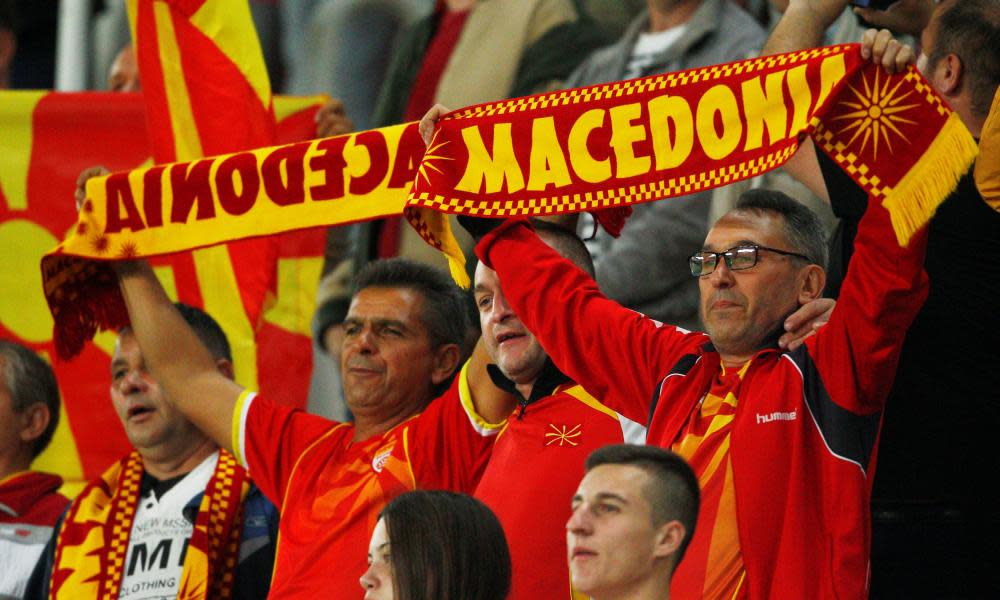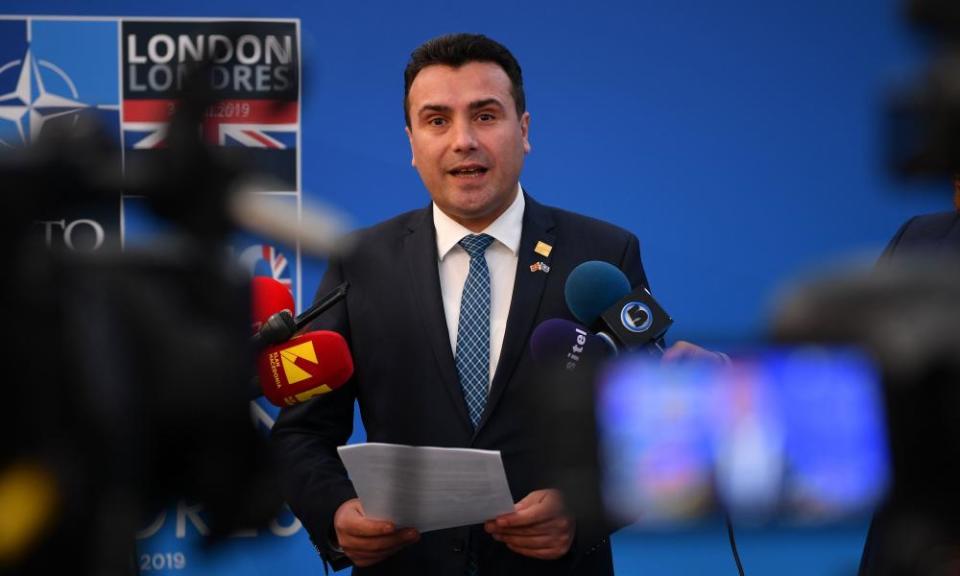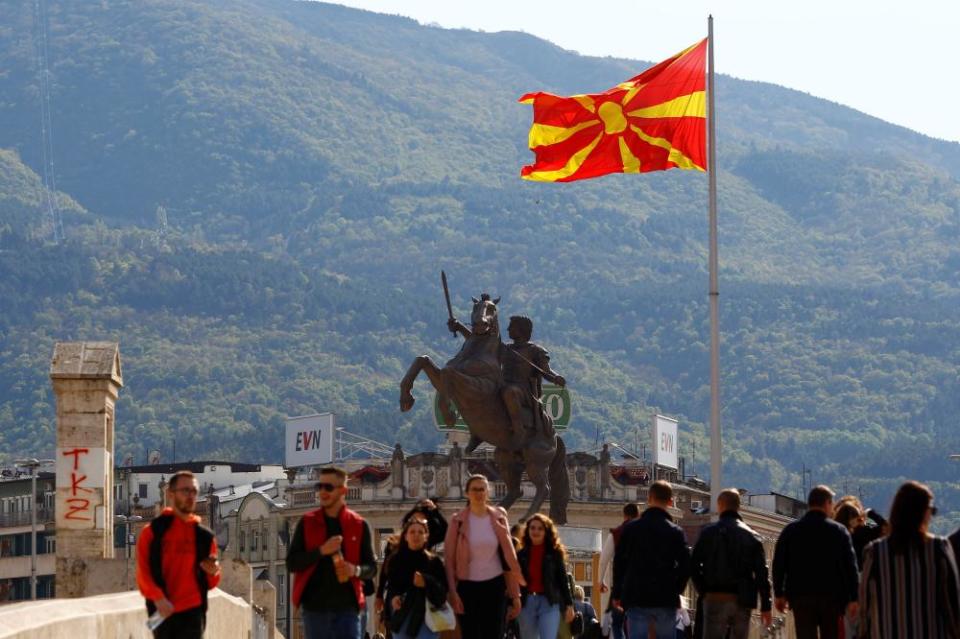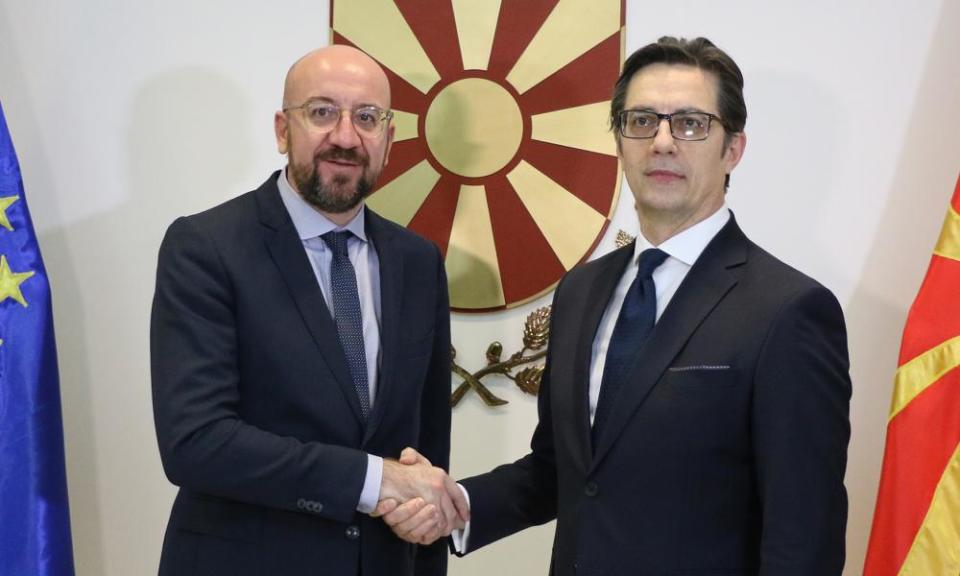'Britain will feel the pain of being excluded': the countries clamouring to join as UK exits the EU

“I sometimes think that those who are inside the European Union don’t realise how cold it is outside,” said Zoran Zaev, who in April will stand for re-election as North Macedonia’s prime minister. For Zaev, watching the Brexit saga play out has been a bemusing experience as he pushes to take his country in the other direction.
The western Balkans nations have been promised an EU future for more than a decade, but expectations of a formal start to accession talks with North Macedonia and Albania were dashed late last year when the French president, Emmanuel Macron, said that given Brexit and other challenges, the bloc should reconsider how it goes about enlargement.
It was particularly galling for Zaev, one of the signatories to last year’s Prespa agreement, which changed the country’s name from Macedonia, ending a decades-long dispute with Greece and supposedly paving the way for accession talks. He said the EU’s failure to deliver was “a historic mistake”.
Irritated by the rebuff, he called early elections for April that will be the opposite of Britain’s general election last month: while Boris Johnson called that vote to drag Britain out of the bloc, Zaev wants to push open the door to entry.
“I took responsibility because I promised to my citizens and my MPs that if we change our constitutional name it will be worth it, Europe will appreciate that and deliver. But they did not deliver,” said Zaev. Under the country’s laws, he has had to step aside as prime minister until the vote.
Zaev said he spoke to Macron at a Nato summit in December and found him to be “very positive and encouraging”. The hope is for the European commission to agree on a new framework for enlargement in the coming months. Nikola Dimitrov, North Macedonia’s foreign minister, said: “Hopefully there is a positive decision in March. The stakes are enormous.”

Even Zaev’s opponents from the nationalist VMRO party, which opposes the Prespa agreement and has promised to work against its implementation if elected, are firmly in favour of EU accession. “There’s not a significant political force that doesn’t want EU and Nato integration,” said Aleksandar Nikoloski, VMRO’s vice-president. Polls show that 85% of North Macedonians are in favour of joining the EU.
On Friday morning, shortly after signing the Brexit withdrawal agreement, the European commission’s president, Charles Michel, boarded a plane bound for the Balkans. On visits to Skopje and Tirana, he moved swiftly from inking the confirmation of one nation’s EU departure to reassuring two membership hopefuls that they still have hopes of accession.
“He came to deliver the message that the future of this region is in Europe and that it’s a high priority,” said Dimitrov.
Albania and North Macedonia are coupled together for enlargement purposes, and even if the green light is given, accession will still be many years away. Serbia and Montenegro are further along the path, while Kosovo and Bosnia are less advanced, but the governments of all six countries have expressed a desire to join.

“The destiny of this country, the destiny of the western Balkans, must be oriented entirely towards Europe,” Michel said at a press conference with Albania’s prime minister, Edi Rama, in Tirana on Friday.
Rama told the Guardian last year that joining the bloc would mean “finally having the possibility to place ourselves in a safe zone from the curse of history”. The country had one of the most brutal communist dictatorships, and a difficult transition during the 1990s.
Opening EU accession negotiations would also force leaders in the region to push through much-needed reforms. Additionally, there is excitement among business communities in the country about the benefits that joining the customs union and single market could bring.
Shpetim Avdyli, who runs a vegetable export business from the town of Lushnjë in central Albania, said: “Although we have agreements in place to export, and I am convinced our quality is good, they look for any excuse not to let my products in. They don’t want products that they already grow themselves.”
He said he had frequent quarrels with customs officials in the various EU nations to which he exports his tomatoes, peppers and courgettes. Three months ago, a truck of tomatoes was stopped for seven days for a customs check at the border with Greece, and the whole shipment was ruined, he said, a devastating blow for a small company with around €400,000 of exports per year.

While he expects Britain to secure a deal that will avoid many of the hurdles he faces, he believes British farmers could still be in for a difficult time. “They won’t be treated like us, but they will still feel the pain of being excluded,” he predicted.
Asked what it would mean to him if Albania does join the EU, he beamed a broad smile. “I would be like a caged bird that was set free. It would bring so much opportunity, such a big market,” he said.
While everyone in the region is at pains to acknowledge that Britain and the western Balkan nations are in very different positions, there is nevertheless a widespread disbelief that Britain had the EU membership that is coveted so much in the region and voluntarily chose to jettison it. Zaev said he thought the British people would come to regret their choice in time.
“It’s good to be good together with others, not separate,” he said. “I see what’s happening with Northern Ireland even now. Every day life brings new problems. Why open old problems?”

 Yahoo News
Yahoo News 
